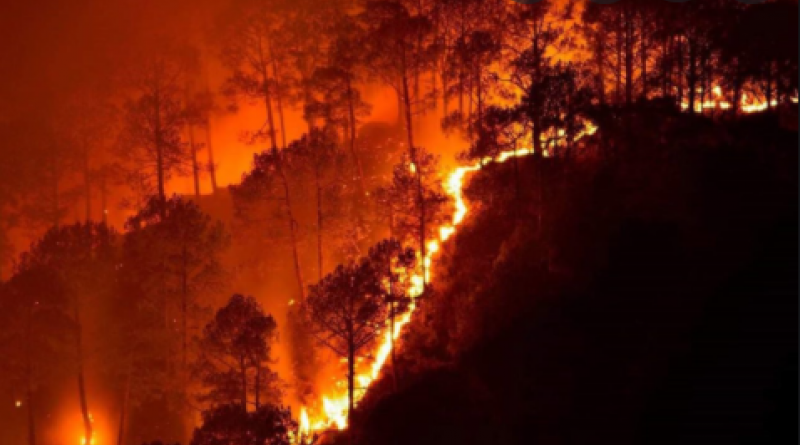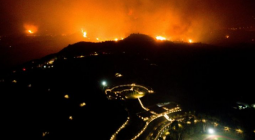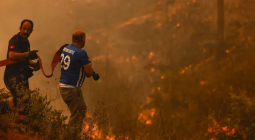July wildfires were worst for 18 years and released record levels of carbon, scientists say

Last month was the worst July for wildfires across the world in at least 18 years, scientists have said.
Parts of Africa, Europe, the Middle East, North America and Siberia caught on fire as a result of extremely hot and dry weather.
The fires in July released 343 megatonnes of carbon, and is “the highest since our records began in 2003,” according to Mark Parrington, senior scientist at the EU’s Copernicus Atmosphere Monitoring Service (CAMS) – which estimates how much carbon is released into the atmosphere by forest and grassland infernos.
More than half of the carbon came from the US, Canada, and Siberia, which have had unusually hot and dry weather.
It has been estimated that wildfires emit between 5 and 30 tonnes of carbon per hectare depending on the intensity of the fire and the type of matter burned.
In the state of California, which has been the worst-affected by wildfires in the US, there are 16 active fires that have yet to be contained – according to data on the website of emergency services Cal Fire on Friday.
A wildfire called Dixie has burned through 322,000 acres and reduced the small town of Greenville, in Sierra Nevada, to ashes. Its cause is under investigation.
California’s Beckwourth Complex Fires – consisting of fires named Dotta and Sugar – were sparked by lightning and temperatures hitting 54C – the highest since 57C recorded in 1913, that is saif to be the highest temperature on Earth.
The two fires had collectively burned through 105,670 acres until they were almost completely contained this week.
Across the Mediterreanean, at least eight people have died and hundreds have been taken to hospital as a result of wildfires ripping through southern Europe. A large number of animals have also died and been injured.
Thousands of people have been evacuated from their homes and from holiday resorts as fires spread in Albania, Croatia, Cyprus, France, Greece, Italy, North Macedonia, Spain, Turkey, and some of islands including Rhodes, Sardinia, and Sicily.
Among the worst affected nations was Italy. Its central government has requested support from other nations through the EU civil protection mechanism.
Virginijus Sinkevicius, the EU’s environment commissioner, said the global fires and extreme weather shows that there is a need to address climate change.
He tweeted on Thursday: “We are fighting some of the worst wildfires we’ve seen in decades. But this summer’s floods, heatwaves and forest fires can become our new normality.
“We must ask ourselves: is this the world we want to live in? We need immediate actions fo nature before it’s too late.”
Morocco in north Africa, and Lebanon in the Middle East, have also experienced wildfires as a result of hot dry weather.
The threat of new fires continues for August, and many fires still raging are feared to spread as they have not been fully-contained and extinguished.
The number of huge blazes on the continent are increasing and the area vulnerable to such fires is widening, according to the EU’s Disaster Risk Management Unit.
Finland’s sharp increase in the number of wildfires has been cited as an example of such destruction taking place outside of the warmer Mediterranean region.
6 August 2021
INDEPENDENT





